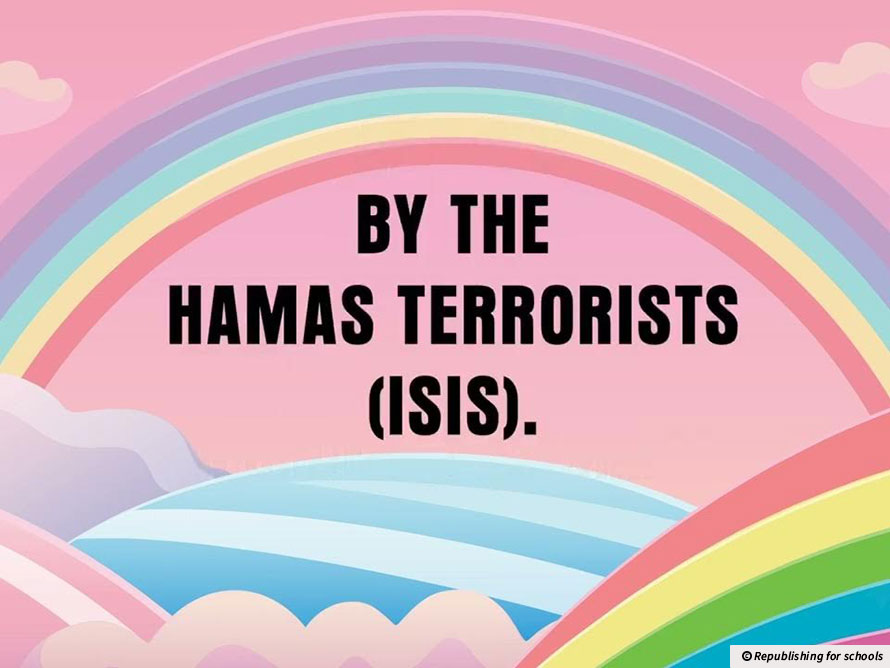Is the real Gaza conflict online? As the next stage of the conflict develops, both sides are using the online world to build international sympathy — and attack their opponents.
Unicorns and sparkles conceal message of war
 Child’s play: A video calling on parents to “stand with” Israel has appeared on YouTube.
Child’s play: A video calling on parents to “stand with” Israel has appeared on YouTube. Glossary
Hamas - A militant Palestinian organisation, which has controlled the Gaza Strip since 2007. It is listed as a terrorist organisation in the UK.
Gaza - The smaller of two Palestinian territories, home to two million people. It is located on the Mediterranean coast, bordered by Israel and Egypt.
Human shields - A method of warfare in which civilians are placed near military sites to prevent attacks from the other side. Often the civilians are not given the choice of whether or not to be placed in danger.
IDF - Israel Defence Forces, Israel's national military.
Telegram - Today: an encrypted instant messaging app. In the past: a message sent via electric wires and delivered as a printed piece of paper. As every word was expensive, making the message as short as possible became an art. A famous joke telegram sent from Venice read, "STREETS FULL OF WATER PLEASE ADVISE".
Reservist - Soldiers who do not serve in a country's regular army, but can be called upon when needed.
Isaac Herzog - An Israeli politician, who has been president of the country since 2021.
Lindsey Graham - An American Republican Party politician, who is a senator for South Carolina.
Raz Segal - An Israeli historian who lives in the USA. He has written books about the Holocaust.
Genocide - The annihilation of a people, either through killing of its members, or through the suppression of its culture.
Ethnic cleansing - The systematic forced removal from one area or killing of an ethnic group, with the aim of creating a region that is ethnically homogeneous.
Palestinian Islamic Jihad - A Palestinian Islamist paramilitary organisation. It is listed as a terrorist organisation in many countries, including the UK.
